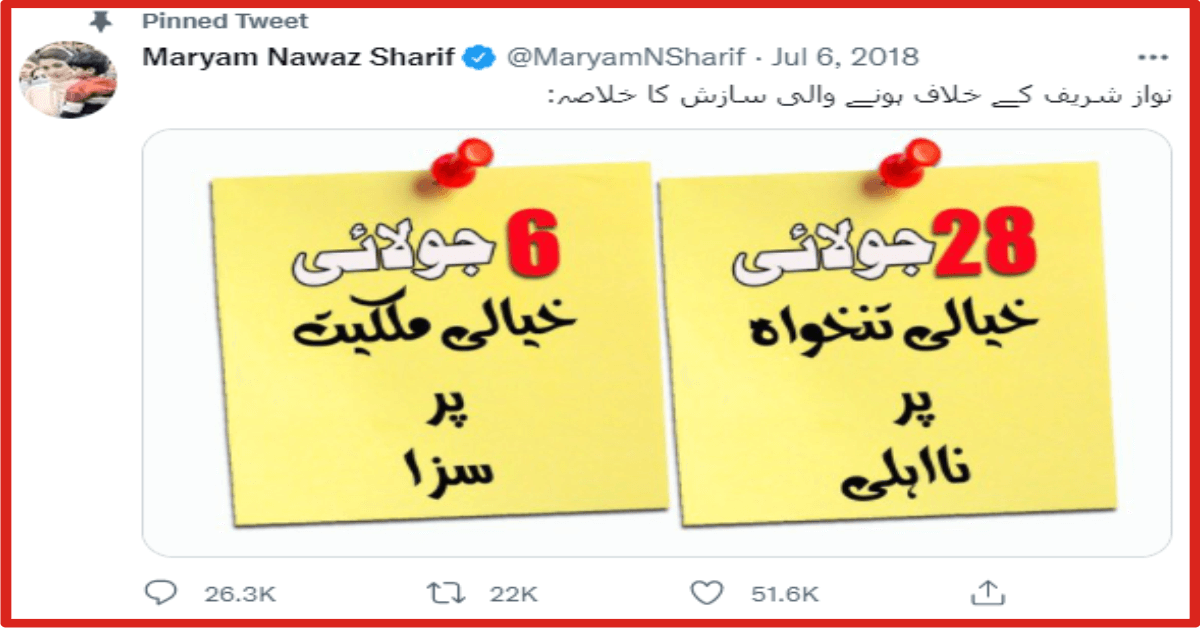Rise and fall of Pakistan Muslim League N
When man begins to think of himself as God, he falls into the clutches of God.

By : Hafiz Muneeb khan, Lahore
When man begins to think of himself as God, he falls into the clutches of God. Born in December 1949, Muhammad Nawaz Sharif was from a prosperous family where his father was a successful businessman. After entering politics in the 1970s, for the first time under dictator General Zia-ul-Haq, he got the opportunity to work in the government in which he was appointed as the Finance Minister.
After the 1985 non-partisan elections, Nawaz Sharif took over the reins of the Punjab province as Chief Minister and began his political career in earnest. In the 1988 elections, he could not get a federal government with the party that emerged in the name of Islamic Democratic Alliance, but once again he became the Chief Minister.
He took over the leadership of the (IJI) in the 1990 elections after the fall of the Pakistan People’s Party government and was crowned Prime Minister for the first time after a successful election campaign.
In just three years, his government was overthrown due to differences with President Ghulam Ishaq Khan. Following this decision, Nawaz Sharif decided to go to the Supreme Court where his government headed by Justice Naseem Hassan Shah was restored.
But the restoration was only temporary and once again the differences between the President and the Prime Minister started after which Nawaz Sharif had to leave the government.
In the 1993 elections, the PPP’s Benazir Bhutto won, but her own president, Farooq Leghari, overthrew her government over allegations of corruption.
In the March 1997 elections, Nawaz Sharif won a clear three-quarters majority and became prime minister for the second time.
In the second term, he tried to establish relations with India and invited his the then Indian counterpart Atal Bihari Vajpayee in Lahore.
In addition, during his rule in 1998, Pakistan conducted its first nuclear test when Pakistan detonated five nuclear warheads at Chaghi in Balochistan.
This time too, Nawaz Sharif failed to complete his term, and in October 1999, then-Army Chief Pervez Musharraf overthrew his government and took over the reins of the country.
Pervez Musharraf, after taking over the government, launched various cases against Nawaz Sharif and his brother Shahbaz Sharif in which the former prime minister had to go to jail.
During this period, Nawaz Sharif’s wife Kulsoom Nawaz and his daughter Maryam Nawaz launched a campaign against the military dictator.
Nawaz Sharif went into exile in Saudi Arabia after his sentence was suspended due to a deal struck with Pervez Musharraf, and his party did not perform well in the 2002 elections in his absence.
During a meeting in London with their traditional rival Benazir Bhutto in 2006, the two former prime ministers signed the Charter of Democracy and pledged to return to democracy in the country and get rid of Pervez Musharraf.
Following the Supreme Court order, Nawaz Sharif tried to return home in September 2007 but the Musharraf administration did not allow him to disembark and returned his plane to Saudi Arabia from the airport. But just two months later, he returned home and was greeted at Lahore’s Allama Iqbal Airport.
In November, he held meetings with other political parties in the country to discuss a boycott of the 2008 elections.
I think this was the second life for the Muslim League but the result was the same because human habits change but nature does not change and in the sea of the same unchanging nature the Muslim League drowned once again.

